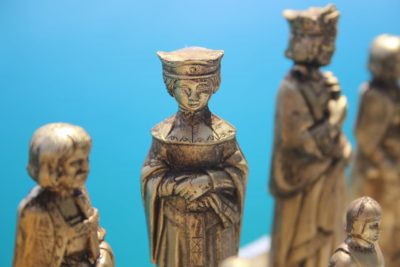
I have a friend who is not a fan of historical fiction (and yes, we’re still friends). She describes them as “those books about kings and queens.” That made me start to think about who makes the best protagonist for historical fiction: is it a real, factual person—who will generally be a public person, or someone in sufficient prominence to have left a record—or an everyday person, probably spun from the imagination? Perhaps there is no better or worse here, but it is still a choice every author of historicals has to make.
Great Choice
Why would one choose to write about a known historical figure? And judging by the number of books in which Henry VIII appears, many authors do! The main reason is that we know so much more about them. Their actions, personalities, relationships are heavily documented. No one who has read a history book is likely to come away without an opinion about Henry. This category isn’t limited to kings, of course. Presidents, authors, inventors, artists, leaders of revolutions: these are people who have left a mark on human history. They are typically forceful, brilliant… memorable. There’s a reason they would make a great protagonist: they’re great men and women. The fact that their lives are well documented gives the author so much to work with: history itself tends to write the plot and cast of characters.
With great power comes great responsibility…
But all that documentation means the need for more—and more careful—research. You have choices with a fictional character, but not with a factual one. Abraham Lincoln either did or did not deliver the Gettysburg Address. He either was or was not married to Mary Todd, who was a certain kind of woman. Otherwise, you’re writing alternative history. The more is known about your protag, the more you have to get right. In the Bronze Age, where I live, we know almost nothing about even the ruling class beyond their names and a few deeds. But about anyone else? We know nothing at all: not how they lived, how long they lived, what their social status made life like. The choice is pretty much made.
And a certain kind of opportunity presents itself with protagonists of power or notoriety. What’s it like to be in such shoes/sandals/boots? How does the burden of responsibility affect people? What makes a good or bad leader? What’s it like to have immense talent that no one acknowledges? World leaders are not cardboard figures; they are the products of the same psychological forces as the rest of us. And wow, can that make an interesting story. The stakes are always high.
More Modest Proposals
For more recent periods and more familiar cultures, the choices widen. We do know what life is like in general for Frenchmen at the time of the Revolution or for nineteenth-century Americans. So an author can decide who he wants to talk about. The anguish of power doesn’t interest you? Pick a more modest person with a more modest tale. Some readers, like my friend, actively prefer a humbler protagonist, finding more to identify with. In particular, if you want to write about the lives of women, you may have to resort to the silent majority. That goes a fortiori if you aim to chronicle the lives of oppressed classes like slaves.
You might base a character on a real person, known only through some reference in the documentation, like a census. Spin a whole fictional life around a couple of facts. Or base your protagonist on a long-ago relative, as many of you have said you do. You’ll almost certainly have more freedom to make things up, because so many particulars remain unknown. But that humble personage may represent a whole class of others, so that your modest story becomes a vast social epic.
And the Winner Is…
Hey, guys—there is no winner! Or rather, there is no loser. Either choice can be great, as long as the story, characters, and descriptions are great. Henry the King or Henry the Blacksmith? It’s up to you.
